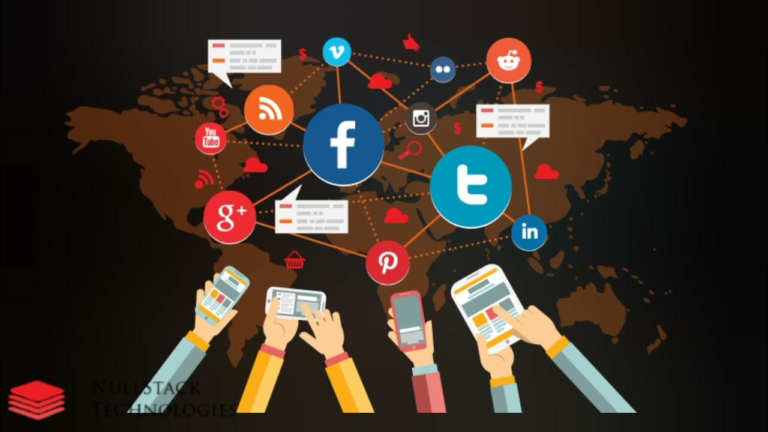Legal Localization Agency Support for US Regulations
Legal documents are complicated, and when they go across borders, that complication doubles. If your business has to do with international contracts, compliance documents, or regulatory filings, precise legal translation is not a choice. It’s necessary.
That’s where a legal localization company comes in. Translating words is just part of what they do; they also ensure US companies comply with international and domestic regulations, stay out of lawsuits, and establish trust beyond borders.
Let’s explore how these agencies assist US firms in remaining compliant with constantly evolving legal needs and why the proper partner will pay dividends.
Why Legal Localization Matters for US Companies
From San Francisco tech startups to New Jersey pharmaceutical firms, US companies are increasingly doing business in foreign markets. But each country—and sometimes even each state—has varying laws regarding data privacy, contracts, employment, and corporate governance.
Legal translation services guarantee that your documents comply with those standards in foreign languages, whereas legal localization takes it a step further. Legal localization adjusts documents to suit local laws, cultural norms, and regulatory requirements.
Example: A US Tech Company Expanding to Germany
A California-based SaaS company wanted to open a branch in Berlin. They translated their standard employment contracts using a general translation service. However, the translated contracts didn’t align with German labour laws, specifically around probation periods and termination clauses.
The result? Costly legal revisions and delays in onboarding staff.
After switching to a legal localization agency, the company received employment contracts customized for German law. The agency worked with local legal consultants to ensure terms were enforceable in the EU. That saved the company both time and money—and helped them stay compliant from day one.
Areas Where Legal Localization Agencies Help
Let’s break down some common legal areas where localization matters—and how a professional agency helps US companies get it right.
1. Regulatory Compliance
Every industry faces its own rules. Whether it’s GDPR for tech companies or FDA compliance for health brands, legal localization agencies help you adapt documentation to meet local standards.
Case Study: US Biotech Company Entering Japan
A Massachusetts-based biotech firm planned to distribute medical devices in Japan. The product labels, user manuals, and compliance certificates were translated into Japanese—but the legal references were not localized. This caused the Japanese regulator to reject their application.
They partnered with a legal localization agency with experience in Japan’s Pharmaceuticals and Medical Devices Act (PMDA). The agency localized the documents using correct legal terminology and ensured they matched Japanese regulatory frameworks. Approval came within weeks.
2. Contracts and Agreements
A direct word-for-word translation of a contract can be legally risky. Phrases like “best efforts” or “time is of the essence” carry different legal weight in different jurisdictions.
Legal translation services paired with localization ensure your contracts reflect enforceable, culturally appropriate terms.
3. Intellectual Property (IP) Protection
Patent filings, NDAs, and licensing agreements must be spot-on to protect your ideas globally. A good legal localization agency ensures terminology matches local IP law.
For instance, the definition of “invention” can vary between US patent law and China’s IP framework. One misplaced word can lead to disputes or outright rejection of your patent.
What Makes a Legal Localization Agency Effective?
Not all language providers are created equal. Here’s what to look for when selecting a partner:
1. Legal Expertise
Choose agencies that work with qualified legal translators who understand both US law and the legal systems of the target country. They don’t just speak the language—they understand the law.
2. Industry Knowledge
If you’re in healthcare, finance, or tech, your legal documents will have industry-specific terminology. A good agency will have experts who know your sector’s legal language.
3. Cultural Accuracy
Legal language isn’t just technical—it’s cultural. A legal localization agency should ensure that the tone, structure, and style of your documents match local expectations.
Example: E-commerce Terms in the Middle East
A Florida-based e-commerce company expanded into the UAE. Their terms and conditions, written for US consumers, included sections that conflicted with local business practices and consumer rights.
The legal localization agency rewrote sections to align with UAE law and cultural norms—such as return policies and customer service standards. The result? Fewer complaints, higher trust, and smoother operations.
Common Documents That Need Legal Localization
Here are some types of documents where legal translation and localization are especially critical:
- Employment contracts
- Partnership agreements
- Compliance documents
- Terms and conditions
- Privacy policies
- Patent applications
- Regulatory filings
- Corporate bylaws
- Product warranties
- Court documents
Mistakes to Avoid with Legal Translation
1. Using General Translation Services
Legal documents are not like marketing brochures. General translators may miss nuances that can cost you later. Always choose specialized legal translation services for critical legal content.
2. DIY Translation Tools
Machine translation tools may seem convenient, but they’re risky. They lack context, and legal phrasing can easily be mistranslated. That leads to legal exposure.
3. Ignoring Regional Differences
A “Spanish translation” for Mexico isn’t the same as one for Spain or Argentina. Similarly, laws in Quebec differ from those in France. A legal localization agency knows these regional legal variations.
How to Choose the Right Legal Localization Agency
Not sure where to begin? Here’s a quick checklist:
- Do they specialize in legal translation services?
- Do they have experience in your target market’s legal system?
- Can they provide industry-specific expertise?
- Do they use a review process with native legal experts?
- Are they ISO-certified or compliant with translation quality standards?
Final Thoughts
Legal translation is not just about language. It’s about protecting your company, avoiding penalties, and staying compliant in every market you enter.
Partnering with a legal localization agency ensures that your legal documents do more than make sense—they hold up in court, earn regulator approval, and build trust with global clients and partners.






